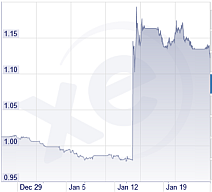About 23,000 US design patents issued last year. The firms that have thus far responded to be listed in the Design Patent Tote Board between them filed about 2300 design patents, or about ten percent of that total.
So as may be seen, there are still quite a few patent firms that have not yet reported their design patent totals. Here are some of the well-known patent firms that have not yet reported their design patent totals:
- Cantor Colburn
- Foley & Lardner
- Morgan Lewis
- Birch Stewart
- Sterne Kessler
- Kilpatrick
- Nixon Vanderhye
- Crowell & Moring
- Rader Fishman
- Westerman Hattori
- Finnegan Henderson
- Christensen O’Connor
- Harness Dickey
- Ladas & Parry
- Wolf Greenfield
- Leydig Voit
- Oblon Spivak
- Sheridan Ross
- McAndrews Held & Malloy
If you know somebody at one of these firms, I’d be grateful if you can pass along to them a link to this blog post, so that they can complete and submit the questionnaire. Submissions will close January 31 and the tote board will be published in February of 2015.


